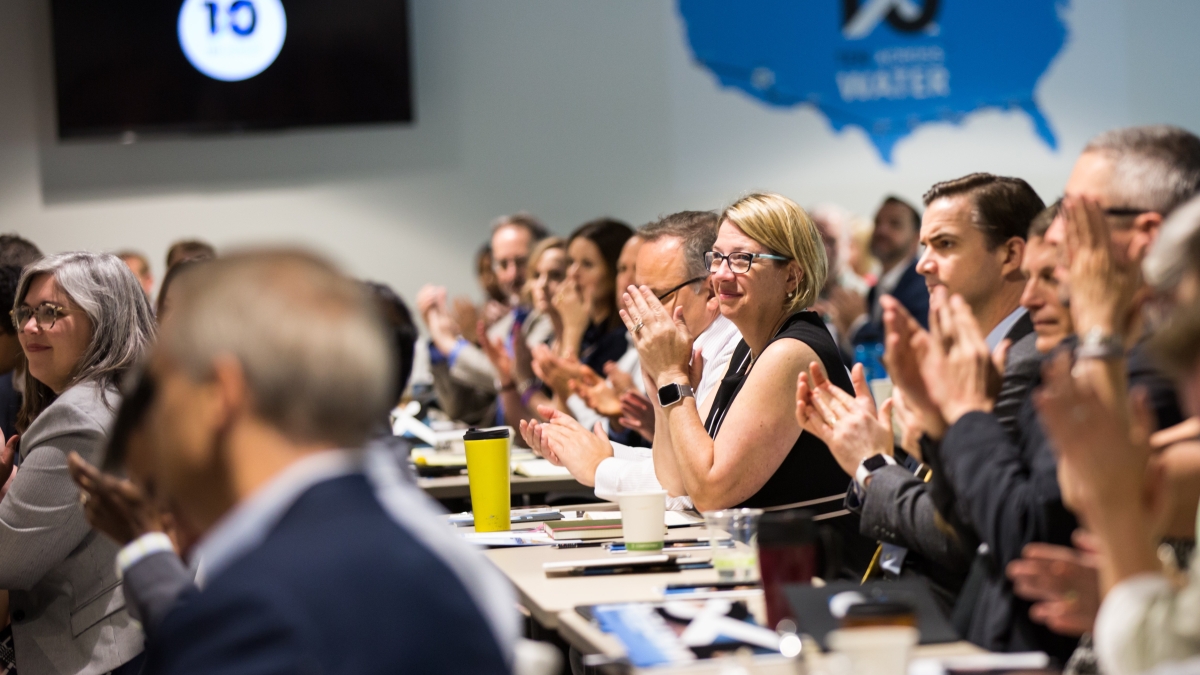Summit connects city leaders, researchers to address resilience, sustainability challenges

If you want to understand the future of the United States, look no further than the southernmost transect that takes you from Los Angeles to Jacksonville, Florida.
The region, which approximates where U.S. Interstate 10 runs, contains the three most populous states, 12 of the largest and most rapidly growing metro areas of the country, the energy capital of the world, many of the largest American international ports, a region that faces extremes in weather and water-related challenges, and a region of great diversity and demographic change.
Starting on Jan. 10, civic leaders, researchers, subject matter experts and journalists will descend onto Houston for the third in-person Ten Across Summit: “The Future is Here,” which examines the region as a living laboratory for the future of the entire country.
“Ten Across focuses on this geography because we think it exemplifies all the future trends that we're going to have to deal with,” said Wellington “Duke” Reiter, founder and executive director of Ten Across.
The summit, which will have a special emphasis on the future of energy transition and water resilience, aims to foster collaboration, build partnership networks and translate data into compelling narratives to inspire action.
"The purpose of the summit is to bring all sectors grappling with these pressing issues together to share insights in a solution focused setting," said Reiter, who also serves as the executive director of Arizona State University's University City Exchange. "It's an interesting mix (of people) around issues we need to be working on together. These conversations need to be had."
Speakers include Bobby Tudor, chairman of the Houston Energy Transition Initiative, Reginald DesRoches, Rice University president, Houston Mayor Sylvester Turner, Jeff Goodell, a best-selling author, esteemed journalists and editors Michael Kimmelman and Matt Thompson from Headway, the New York Times and many more.
The summit will also foster introductions leading to intentional communities, working groups and networks specifically focused on community foundations, chief resilience and sustainability officers, water and data specialists, housing experts and leaders in the private sector.
Panel discussions will explore key issues and challenges critical to the future of the U.S. with a focus on place and innovative ideas and solutions that may get us there. Topics include: the potential feasibility and implications of creating a pipe to move water from the Mississippi River to the Colorado River Basin; discussions around what the energy transition from fossil fuels to renewables will mean for Houston, the region and the industry; and what stories are resonating with climate journalists across the country and how public confidence in journalism and facts are necessary to meet the challenges before us.
In addition to panel discussions and networking events, there will be a special workshop on the use of data visualization tools for forecasting limited water supplies and educating the public and water policy discussions. The half-day workshop will bring together researchers and public and private sector experts — including ASU’s Rhett Larson, Richard Morrison Professor of Water Law at ASU's Sandra Day O'Connor College of Law, and Susan Craig, program director of ASU’s water initiative in the Global Institute of Sustainability and Innovation — to discuss how to create, improve and expand water analytics and visualization tools. It will also feature ongoing projects for sharing, evaluation, comparison and improvement, and joint efforts to create a larger water research network.
“The purpose of the summit is to rally people from different geographies around issues and concerns that they share,” Reiter said. “We’re bringing people together to find a common cause, and the fact that they all live on the same street tethers them together.”
To learn more about the summit and access the full program agenda, visit the event website.
Top image: Attendees at the Ten Across Summit in 2019. Courtesy of Ten Across
More Science and technology

From food crops to cancer clinics: Lessons in extermination resistance
Just as crop-devouring insects evolve to resist pesticides, cancer cells can increase their lethality by developing resistance to treatment. In fact, most deaths from cancer are caused by the…

ASU professor wins NIH Director’s New Innovator Award for research linking gene function to brain structure
Life experiences alter us in many ways, including how we act and our mental and physical health. What we go through can even change how our genes work, how the instructions coded into our DNA are…

ASU postdoctoral researcher leads initiative to support graduate student mental health
Olivia Davis had firsthand experience with anxiety and OCD before she entered grad school. Then, during the pandemic and as a result of the growing pressures of the graduate school environment, she…